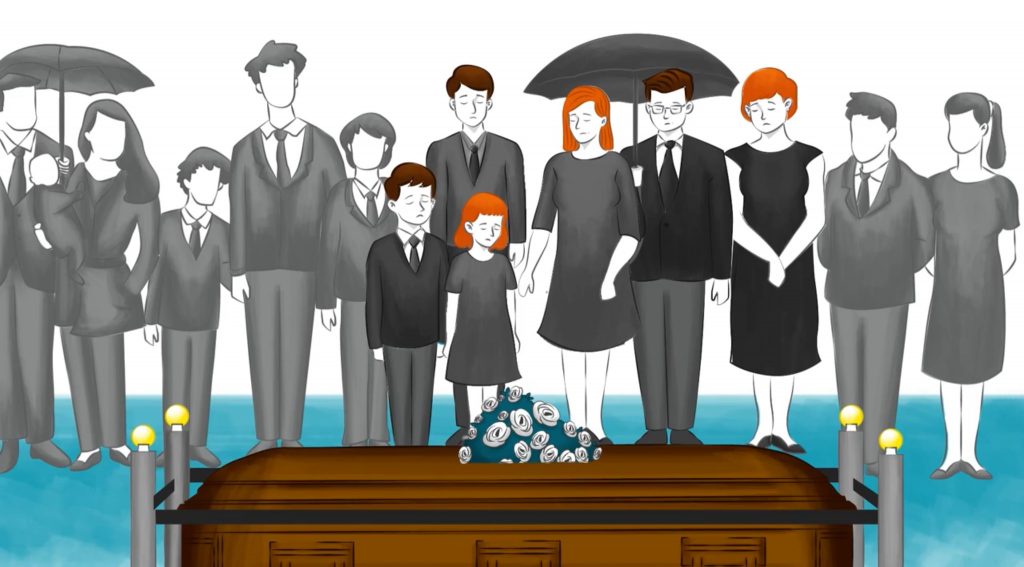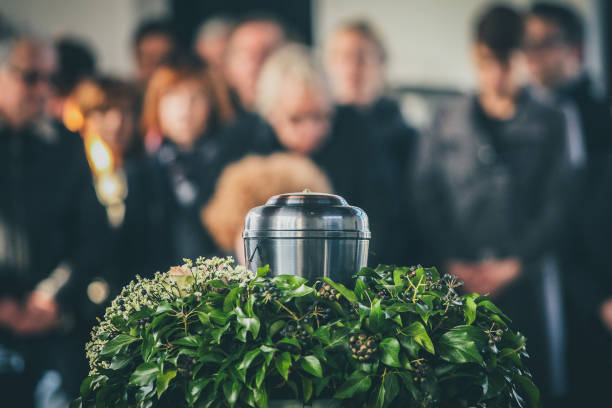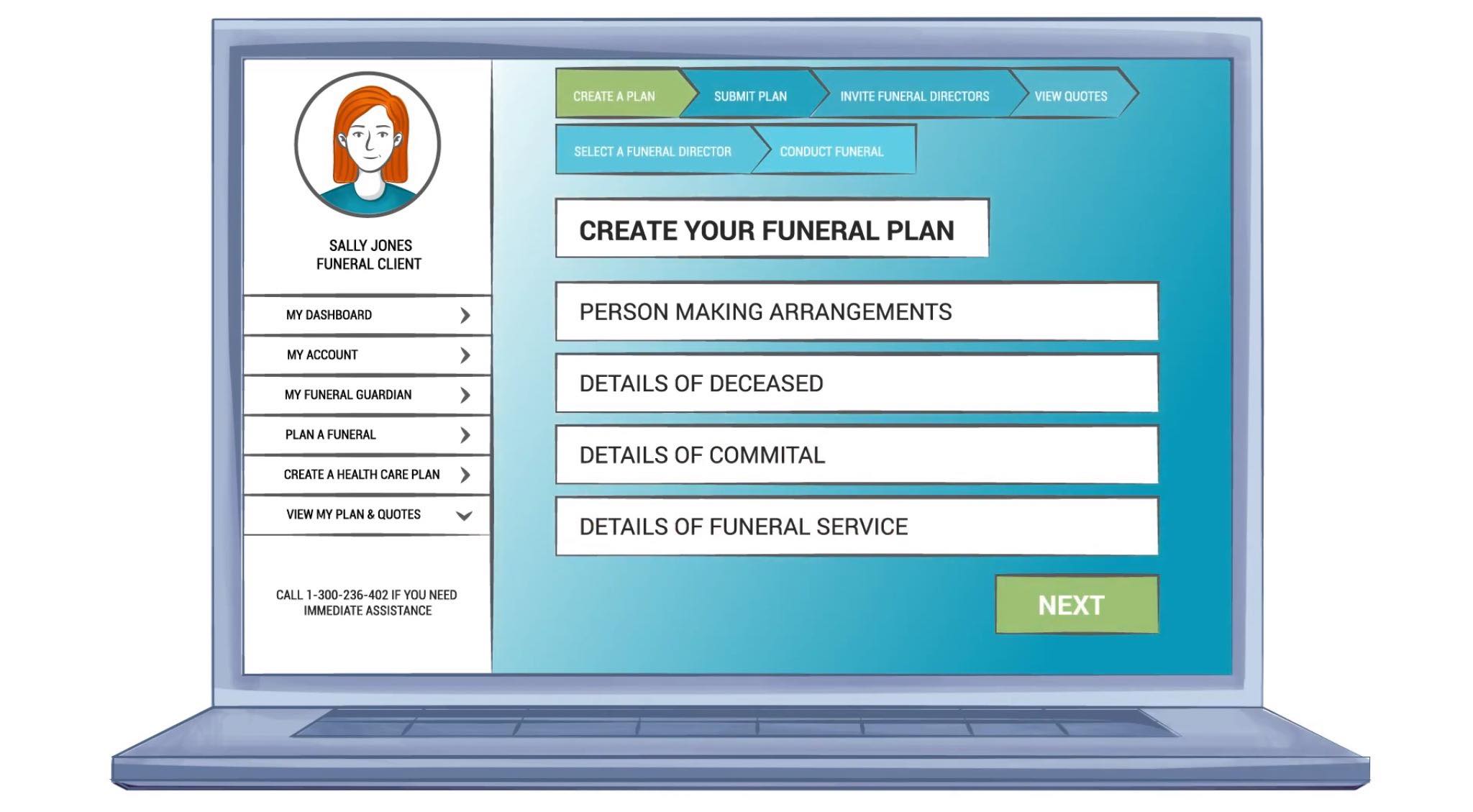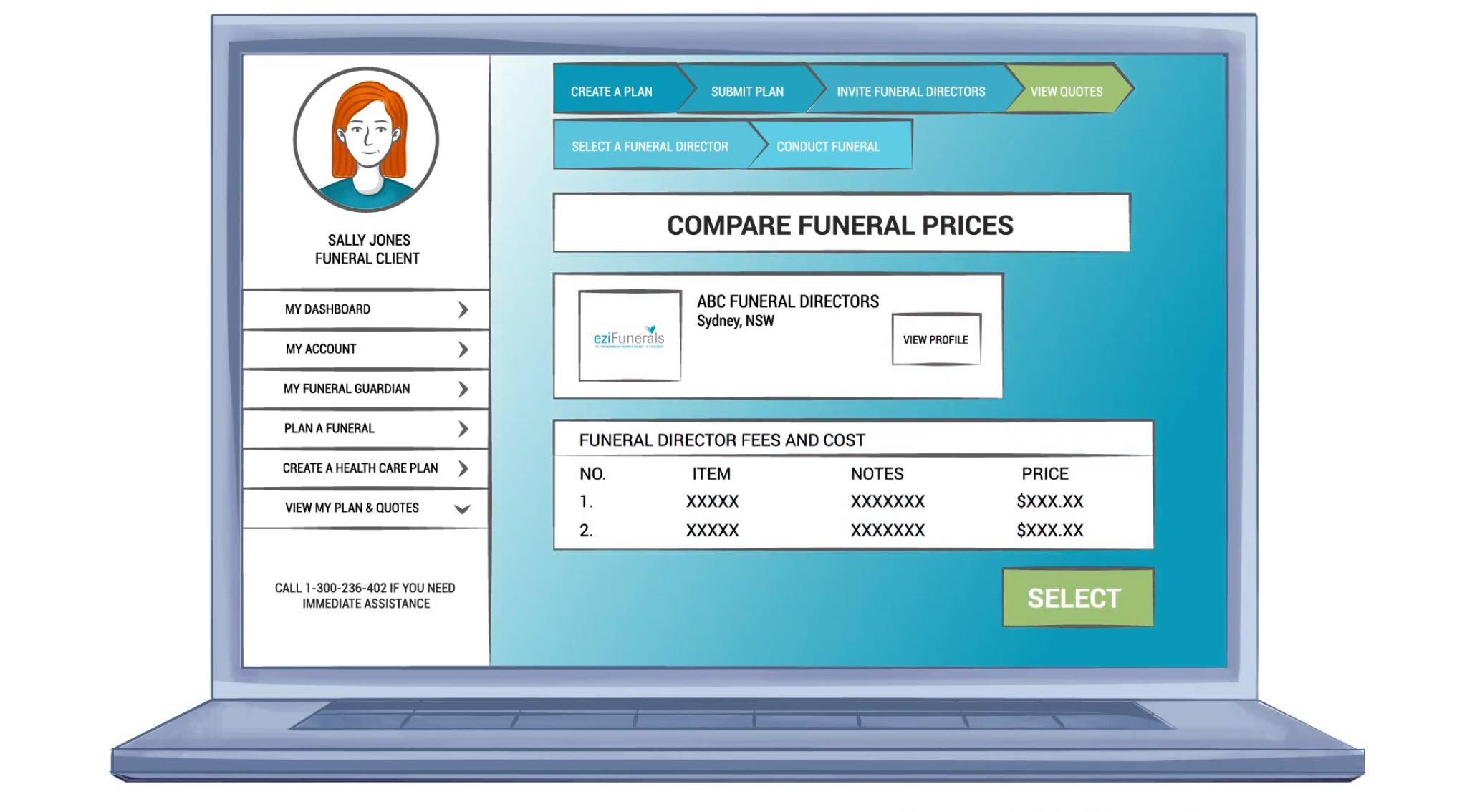To help, we have compiled some of the most common questions asked about cremation. At eziFunerals we provide a great deal of information that can help you decide if cremation is right for you and your family.
What is cremation?
Cremation is the process of reducing the body to ashes and bone fragments through the use of intense heat. The process usually takes from two to four hours. The cremated remains are then pulverised to break up larger bone fragments to a granular texture.
How popular is cremation?
The number of cremations in Australia has steadily risen to almost 70 percent in 2022. Cremation is often chosen because it’s more simple and economical, allows more flexibility in funeral and memorial services, or uses less of our land resources than traditional earth burial.
The cremation rate is increasing due to several social, demographic, economic, and religious factors.
- People travel and relocate much more than they did just a generation or two ago. Ties to tradition are not as strong as they once were. The long-standing tradition of the family plot in the local cemetery no longer holds the same significance that it once did.
- Cremation is significantly less expensive than a traditional burial and funeral.
- Cremation has become an acceptable alternative to burial from both a popular and religious viewpoint.
- Cremation offers portability and greater flexibility in memorialisation services in a way that traditional burial cannot match.
There are a number of reasons that cremation is increasingly becoming the first choice for final arrangements. While it is true that cremation is significantly less expensive than a traditional burial, other factors also influence the decision process. These factors include:
- A growing acceptance of cremation, both from a secular and a religious standpoint.
- A population that is increasingly on the move, with fewer ties to tradition.
- A growing attitude toward cremation as a more environmentally responsible choice.
- Greater flexibility in memorialisation options.
Which religions permit cremation?
Most religions do. Canon Law now permits cremation for Roman Catholics, but the remains must be buried or entombed, not scattered or kept. Muslim, Greek and Jewish Orthodox faiths forbid cremation, as do some fundamentalist Protestant groups.
Prices are set by the individual cremation providers or funeral homes, and can vary widely from one provider to another, even within the same area. Cremation costs also depend on whether other services are included, the cost of the casket or container used during cremation, and other factors.
What is “direct cremation”?
With this affordable cremation option, the body is cremated shortly after death, without embalming, viewing or visitation. If a funeral home is used, their charges will include the necessary paperwork, basic services fee, transportation, a container for cremation, and, in some cases, the crematory fee.
In general, when referring only to the cremation process itself, with no additional services or funeral arrangements, you may expect the following average costs. Direct cremation (in which the body is cremated and the ashes returned to the family, with no funeral or other services added) is the most simple, and least expensive option.
The best way to find out the average cost of a direct cremation in your area is to shop around and get a quote. That way you can compare “apples to apples”. Ask questions to make sure that the price you are quoted is not part of a package, which can significantly increase your cost.
It is important to remember that not all cremation providers are the same. You should not base your decision on the price alone. You should also make sure you are getting a quote for the complete cost.
Some questions you should ask the cremation provider:
- Are you a member of any funeral association, like the Australian Funeral Directors Association?
- Do you follow a code of ethics?
- Do you perform your own cremations, and if not, who performs the cremations? Where are they located?
- Can I schedule an appointment to meet the staff face-to-face and tour your facility?
- Can I witness the cremation?
- How soon after receiving the deceased do you perform the cremation?
- Do you keep the body refrigerated until cremation?
- Do you require identification of the body prior to cremation?
- What kind of tracking system do you use to make sure I receive the correct cremated remains?
- How will you return the ashes, if no urn is provided prior to cremation?
- What is your policy on holding cremated remains after cremation?
- How do you dispose of prosthetics and artificial devices?
- Can I have references of other families you have served?
- Do you offer any kind of guarantee on your services?
- Do you offer any options for memorialisation or other gatherings of remembrance for my loved one?
- Is your staff certified and up to date on the proper use of the cremation equipment and care of the body and cremated remains?
Is a coffin required?
No, a coffin is never required for cremation. However, most crematories do require that the body be enclosed in a rigid, combustible container. All funeral providers must make available an inexpensive cremation container, often referred to as an “alternative container.”
Can a coffin be rented forviewing?
Some funeral homes will provide an attractive coffins to families who want the body present for visitation or service before cremation. After the service, the body is transferred to an inexpensive container for cremation. Rental coffins are not cheap however, so you might consider using the less expensive alternative container and draping it with an attractive cloth, a quilt, or a flag.
An urn is a container designed to hold the cremated remains of the deceased, either on a temporary or permanent basis. Urns may be highly decorative or very simple. They come in a wide variety of styles and can be made of bronze, wood, marble, porcelain, brass, and other man-made or natural materials. Some urns are even biodegradable, allowing the ashes to be buried so that they mingle with the soil as the urn gradually disintegrates over time.
Must I buy an urn?
No. Some funeral homes will urge you to purchase a decorative urn, but you may simply use the plain container in which the ashes are returned from the crematory. The cardboard or plastic container is perfectly adequate for burial, shipping, storing, or placing in a columbarium.
How do I “Shop Around”?
All funeral homes and cremation businesses must list prices on their website, or give you a copy of their Price List if you come to the door. eziFunerals can help you to easily compare prices from several funeral homes and make an informed decision.
What can I do with the remains?
You have a wide range of choices. They can be put in a niche in a columbarium, buried, scattered, or kept by the family. Cremated remains might be divided among family members to be kept, sprinkled or buried in several different places (i.e. with a first and second spouse). The ashes are sterile and pose no health hazard. Their disposition is generally not regulated by law.
- Place in a columbarium: Cremated remains can be placed in a columbarium niche, often located in a mausoleum within a cemetery. As an alternative, you’ll find that some churches provide niches in a dedicated area inside the church or in a garden wall.
- Bury in a cemetery: You could choose earth burial in either a regular grave or in a special urn section in a cemetery. Some cemeteries will permit two or three containers in an adult-size grave; others allow only one container per grave. Some (unnecessarily) require that you purchase an urn vault.
- Bury on private property: You may bury the cremated remains on your own land, or on another’s property with the owner’s permission. If the cremains are to be buried other than in a cemetery, they should be removed from the container when interred. Keep in mind that unless you have established a family cemetery on your property, the land may be sold for other purposes, and the remains disturbed or rendered inaccessible.
- Scatter on land: Some cemeteries offer sites for scattering, but you may disperse the remains almost anywhere as long as you are discreet. Scattering of cremated remains over an area with special significance for the deceased appeals to many families, and is legal in most jurisdictions. Although there are commercial firms who will scatter the cremated remains for a fee, most families want to do it themselves. Remains that are to be scattered should be processed by the crematory to reduce all fragments to fine particles.
- Keep at home: You might prefer to place the remains in a container special to the deceased, such as a hand-carved box or favourite vase, and display it on a bookshelf or mantelpiece. Or you could buy a decorative urn from a funeral home or cemetery; prices range from several hundred to several thousand dollars.
- Other choices: Every year brings new ways of memorialising a loved one’s cremains. Incorporating the ashes in jewellery, bullets, space rockets, coral reefs, or fireworks are among the possibilities. Check the internet for more details about these and other options.
How can I transport the remains?
Cremated remains may be mailed or carried by hand to another destination. For mailing, they must be placed in an inner container within a padded outer container. If you are taking them on a plane you should leave them in the box just as it came from the crematory, with the official documents attached. Security requires that they be x-rayed, so they must be in a non-metal container.
How can I be sure I am getting a reputable cremation company?
Once you start shortlisting cremation providers, ask questions about the qualifications of their staff, their procedures, and their processes. Listen to your gut.
If you feel pressure to buy certain items, or you feel uncomfortable with the staff, look for another cremation provider.
Can I still have a memorial service if I use cremation?
Absolutely! With cremation, you actually have more options compared to burial. You can still have a funeral with the body present, or you can have a memorial service with or without the remains present.
Keep in mind that if you have a viewing, embalming may be required. Memorial services for cremation are flexible and can be held either at a funeral home, a venue such as a house of worship, a restaurant, or some other location that has meaning for the deceased.
Am I required to buy embalming for a cremation?
No.
Will I get the cremated remains back?
Yes! When you are making arrangements for the cremation, you will be asked to sign an authorisation form.
This form should have a place for you to record how you would like the remains returned to you. The funeral director or crematorium should be able to provide you with an estimate of how long it will take until you have access to the remains.
How can I be sure my family receives the right cremated remains?
Proper identification of the deceased is one of the most important elements of the cremation process. Many facilities post their identification procedures on their websites and provide you with written information outlining their policies. If you are working with a funeral director, he or she will review the information with you. Do not hesitate to ask questions about the process and make sure you are comfortable with the steps of the process before you sign a contract for cremation.
What can I do with the ashes?
There are so many things you can do with the ashes of your loved ones! These days, the only limit is your imagination! Ashes can be buried or placed in a columbarium or kept at home. In addition to traditional urns, there are products available that use ashes for jewellery, artwork, fireworks, and much more.
One of the most popular options is scattering the ashes at a place that had significance for the deceased. If you plan to transport the ashes, make sure that you comply with pertinent regulations.
Can more than one body be cremated at the same time?
No! It is illegal to perform multiple cremations at the same time.
Is a coffin required for cremation?
For a funeral or viewing with the body present, you will likely need a coffin. That doesn’t mean you have to buy one, though. Many facilities offer caskets for rental. You will also need an appropriate container to hold the body during the cremation.
There are many economical options. You will likely see the term “alternative container.” This refers to a combustible, environmentally safe container to hold the body for the cremation.
How is the body prepared for cremation?
If you have a funeral with the body present, the deceased will be prepared in much the same way it is for a burial. It will be cleaned and perhaps embalmed. If you have a cremation without a viewing, the body will be cleaned and medical devices removed. For example, pacemakers must be removed since they can explode during cremation so they are removed. Silicone implants and other prosthetics are also removed.
Does my religion permit cremation?
The positions of various denominations and sects vary widely. Many religions leave it up to the individual to decide. Some still forbid cremation while others mandate it. If you are trying to decide if cremation is right for you and have questions about your religion’s stance, we recommend that you consult with your pastor, priest, or spiritual advisor.
Do I have to buy an urn from the cremation company I use?
No! You are not required to buy an urn from the funeral home or crematory that you use. In fact, you do have to buy an urn at all. These days some people make their own container for the ashes or they purchase one of the many beautiful choices that are available online.
How can I make sure my cremation is environmentally friendly?
The options for green cremation are growing. However, most people are still limited primarily to traditional cremation. There are a number of ways that you can help to make sure that your cremation does as little harm to the environments as possible. Choosing a biodegradable cremation container and urn are very good ways.
We hope that our Cremation Guide has helped answer some of your most important cremation questions. If you have cremation questions regarding a particular provider you are considering, you shouldn’t hesitate to ask. You should never be made to feel uncomfortable about wanting to know more about the process.

GET A QUOTE
About eziFunerals
eziFunerals supports individuals and families coping with end of life decisions, death and funerals. We are an independent, Australian-owned and operated company. We are not part of any other funeral company.
Our member Funeral Directors operate in Sydney, Melbourne, Brisbane, Perth, Adelaide and Australia wide. They are chosen for their knowledge, quality, service, personalisation and experience. They go above and beyond, and will take the time to support the family.
For more information or to make contact with a trusted Independent funeral director, call eziFunerals on 1300 236 402 or visit www.ezifunerals.com.au.






